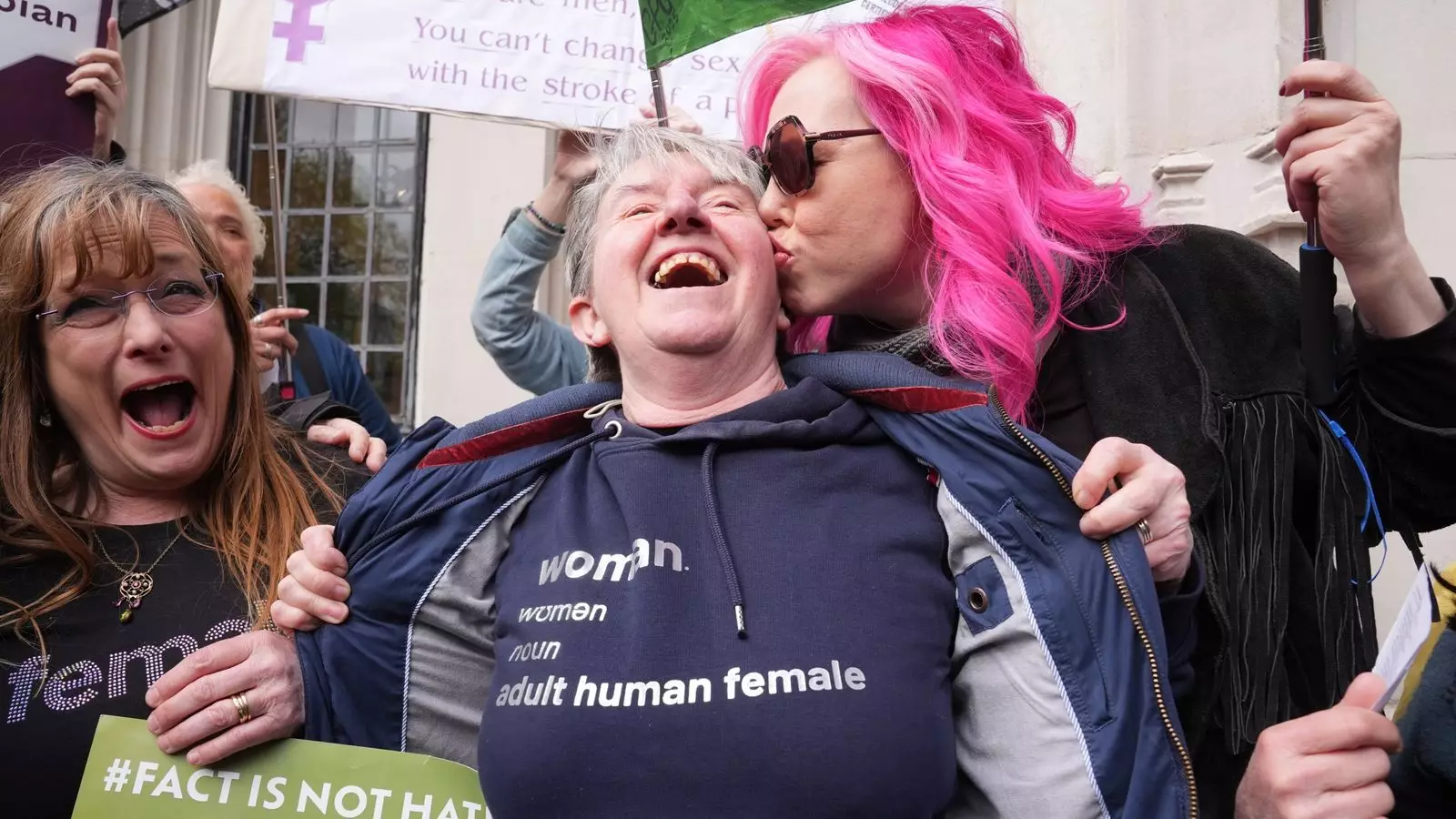In a landmark ruling that undoubtedly stoked the flames of an already contentious discourse, the highest court in the United Kingdom decisively declared that the legal definition of a woman hinges on biological sex. This definition has substantial implications, particularly for the ongoing struggle for trans rights and equality. The court determined that individuals holding Gender Recognition Certificates (GRCs)—transgender individuals who had undergone the legal process to affirm their gender identity—are not recognized as women under the current legal framework. This troubling interpretation echoes a sentiment within segments of society that trivializes the complexities of gender identity, pushing us back to an era of rigid classification that fails to accommodate the fluidity inherent in human existence.
The Underlying Legal Framework
This case was not just an isolated incident; it encapsulates the tension stemming from two pivotal pieces of legislation—the Equality Act 2010 and the Gender Recognition Act 2004. The former allowed for certain exclusions from women-only spaces under specified conditions, while the latter provided a means for individuals to legally affirm their gender. In essence, this ruling negates the foundation upon which many trans individuals have based their lives for over two decades, undermining a significant degree of their recognition in society.
It’s essential to dissect the larger implications here. The ruling has placed trans people’s right to exist safely and authentically in a precarious position. With the courts effectively reinforcing already entrenched societal norms, it raises the question of what happens to the burgeoning movements advocating for gender inclusivity. The travesty lies in the fact that, while the ruling was positioned as a means of providing “clarity,” it ultimately serves to cement exclusion rather than expand our understanding of identity.
The Emotional Fallout
The emotional resonance of this ruling cannot be overstated. Trans individuals and allies have expressed feelings of betrayal, with one trans woman likening the verdict to an assault on her very identity. Such rhetoric is not merely anecdotal; it highlights a broader societal marginalization faced by trans communities. The emotional toll is compounded when victories, such as protections against discrimination, feel overshadowed by an absence of recognition in spaces that should foster safety and acceptance.
On the other hand, women’s rights advocates—who claim they are merely seeking to delineate boundaries for single-sex spaces—celebrated the ruling as a monumental victory. However, celebrating one group’s win at the cost of another’s identity reeks of divisive politics, reminiscent of a zero-sum game. Such triumphalism only deepens the chasm between feminists and trans advocates, rendering true solidarity and mutual support perilously elusive.
Political Consequences and Public Sentiment
The implications of this ruling extend well beyond the courtroom. Politically, it serves as litmus test for the government’s stance on issues of gender identity, which has increasingly become a polarizing topic. The responses from different political figures underline the deep fractures within the political landscape. Scotland’s First Minister, John Swinney, displayed a reluctance to engage with the ruling, underscoring a shift away from the controversial reforms pursued by his predecessor, Nicola Sturgeon. In a politically charged atmosphere where every utterance can be weaponized, the ambiguity surrounds gender identity politics may usher in a new era where expediency reigns over human rights discourse.
With a Holyrood election on the horizon, it seems increasingly likely that parties will pivot away from gender issues to avoid alienating voters. The ruling, rather than prompting a resurgence of gender reform discussions, may solidify a retreat into a discomforting silence around trans issues, subsuming those voices into the powerful echo chamber of traditional politics.
The Way Forward—Clarity or Conformity?
The critical question remains: what does “clarity” truly achieve in a society grappling with complex gender identities? The push for gender inclusivity should not be viewed as an attack on women’s rights but rather as a complementary expansion of human rights for all. Recognizing the validity of trans identities benefits the fabric of society—not diminishes it. The ruling serves as both a legal definition and a reminder of societal defaults that prioritize narrow interpretations of identity over expansive understandings of human experience.
As we navigate these tumultuous waters, it is imperative to challenge the binary understanding of gender that has been seemingly reinstated by the courts. The conversation needs to evolve beyond stark dichotomies and foster an environment where every individual’s identity can coexist, unfettered by the rigid constraints of outdated legislation. Only then can we unite in the recognition that our differences make us stronger, rather than divide us into opposing factions.

Leave a Reply